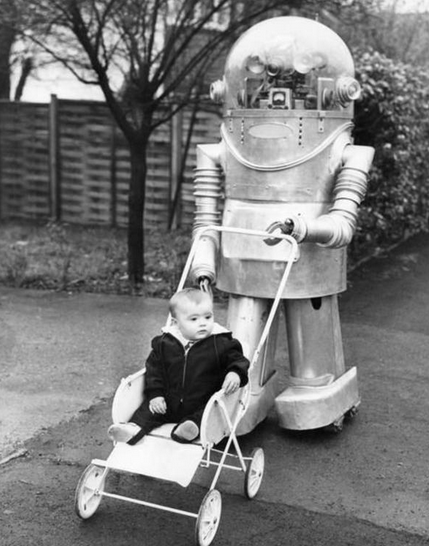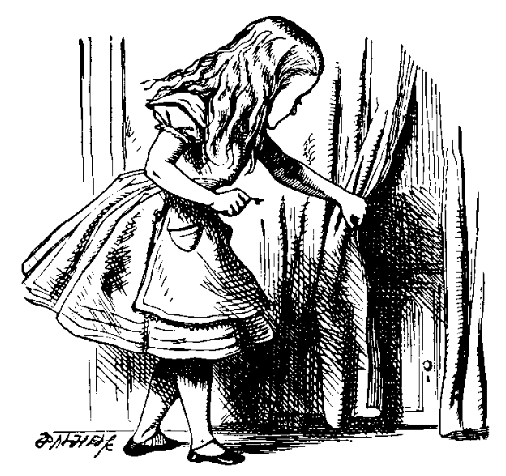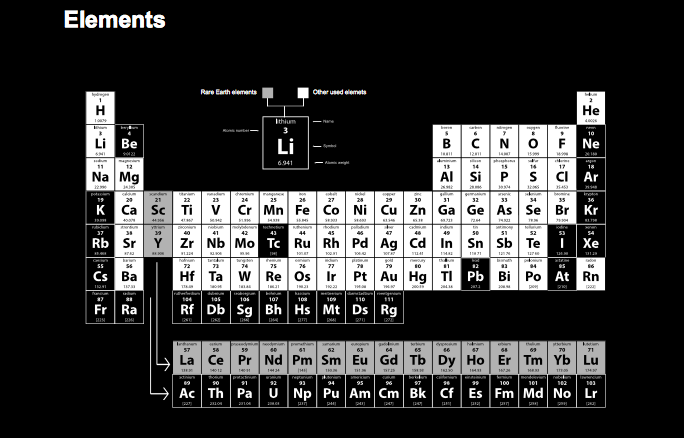No reasoning behind the image. Simply in Madrid with some time on my hands. (At least the robot isn’t on the phone).
Monthly Archives: November 2018
Thought for the day
Here’s what I hope is an uplifting thought about the future. There is a chance that as we increasingly fuse our physical, biological and digital worlds, we will slowly start to see that we are not just individuals, but part of something so much greater. We will start to see that everything connects and that we are part of, and in our own way responsible for, a whole that’s not only very big, but totally unique within the known universe.
As the Buddhist said to the hot dog vendor: “make me one with everything.”
Lewis Carroll on Brexit?
Monday statistic
Last year the number of students taking a creative arts exam in the UK fell by 51,000. Arts subjects, including design, drama and art, now account for only 1 in 12 GCSEs. Four years ago it was 1 in 8. A national scandal.
If we want our children – and our children’s children – to compete with machines that can think, I agree with Lucy Noble, Artistic & Commercial Director of the Royal Albert Hall, that an arts subject should be compulsory at GCSE, although I’d add philosophy to the list of compulsory subjects too.
Poem on a Sunday
The second in my Poem for a Sunday series.
“Ozymandias” by Percy Bysshe Shelley
I met a traveller from an antique land
Who said: “Two vast and trunkless legs of stone
Stand in the desert . . . Near them, on the sand,
Half sunk, a shattered visage lies, whose frown,
And wrinkled lip, and sneer of cold command,
Tell that its sculptor well those passions read
Which yet survive, stamped on these lifeless things,
The hand that mocked them, and the heart that fed:
And on the pedestal these words appear:
‘My name is Ozymandias, king of kings:
Look on my works, ye Mighty, and despair!’
Nothing beside remains. Round the decay
Of that colossal wreck, boundless and bare
The lone and level sands stretch far away.”
Weekly quote fix
“Flying is learning how to throw yourself at the ground and miss.” – Douglas Adams.
Explainable AI
I sometimes get asked how I look at things, especially in the sense of how do I know what to notice and what to ignore. My glib answer is often the rule of 3. If 3 people mention the same thing, or I see 3 examples of something in different contexts, I tend to pay attention.
A good example is Explainable AI. Early this year a coder mentioned an idea for what he called ‘software that rusts’. For some unexplainable reason this instantly grabbed my attention. It was somewhat illogical and possibly contradictory, but there was something in the idea. Digital is pristine and identical. But humans like imperfection and uniqueness.
Last week I was taking with some students at the Dyson Lab at Imperial College and we got talking about AI to AI interactions and I came up with the idea of Digital Provenance. This would be a bit like Blockchain, in the sense that you could see the history of something that was digital, but it would have a far richer and more human storyline. In other words, digital products would be able to reveal where they were coded, but also when? and by whom? In other words, the idea of provenance or ‘farm to fork’ eating transferred to software code or anything that was digital.
Then the day before yesterday I was with some people and the concept of Explainable AI came up. The best way of thinking about this might to think in terms of a black box that can be opened up. I think this will become increasingly important as and when accidents happen with AI and fully autonomous systems. These machines need to explain themselves to us. They need to be able to argue with us over what they did and why and reveal their biases if asked. At the moment most of these AI systems are secret and neither users, regulators or governments can look inside. But if we start trusting our lives with these systems then this has to change.
BTW, since I’m getting into AI, I’d like to highlight a problem that’s been around for centuries – human stupidity. In a sense, the issue going forward isn’t artificial intelligence, it’s real human stupidity. In particular, the human stupidity caused by an overreliance on machines. As Sherry Turkle once said, “what if one of the consequences of machines that think, is people that don’t?” There is a real danger of a culture of learned incompetence and human de-skilling arising from our use of smart machines.
Silly example: I was at London Bridge Station earlier in the week trying to get on the Jubilee Line. The escalators were broken. The queues were horrific. So, I asked why we couldn’t use the escalators. “Because they’re broken” was the response. “But they are steps” I replied. “They still work.” OMG.
Some 50-year old graffiti
Extractivism
Read this. It’s interesting.
Visual of the Week
 Thanks to Kevin for this! Click here for a closer look…
Thanks to Kevin for this! Click here for a closer look…





